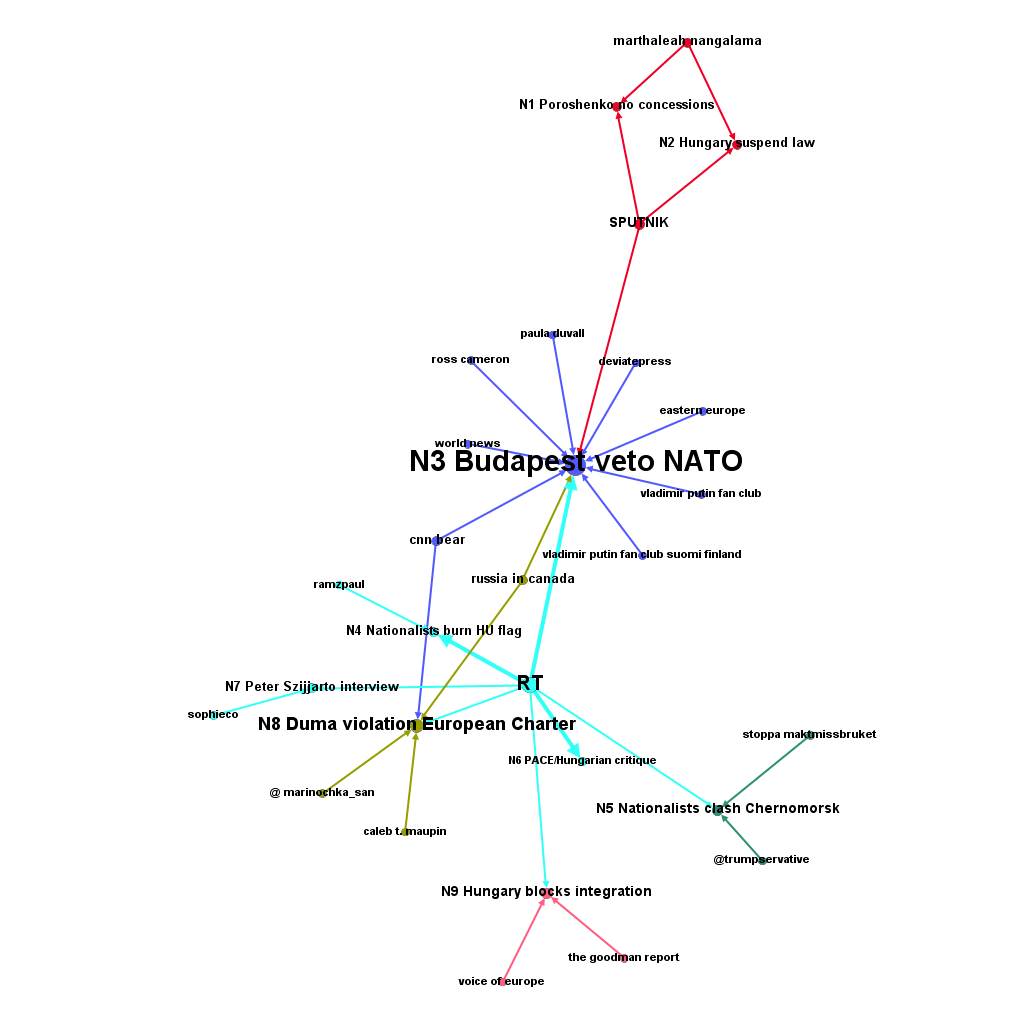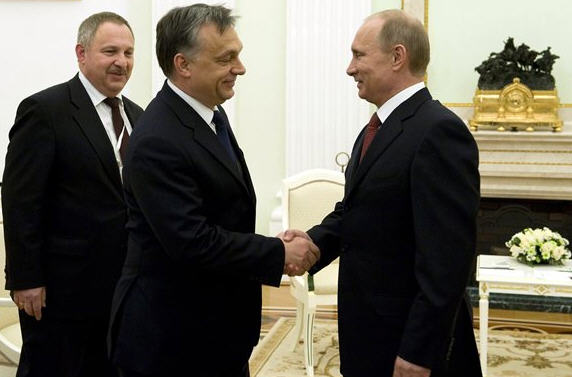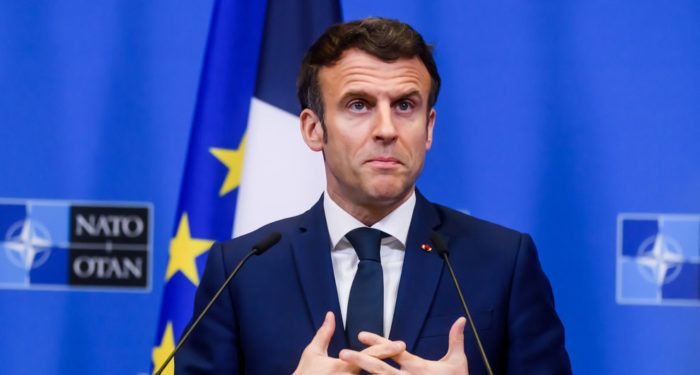Despite the fact that the Hungarian government has expressed support for Ukraine’s territorial integrity and sovereignty, and voted for the European sanctions’ regime against Russia multiple times since the illegal annexation of Crimea in 2014, the Hungarian government is actively blocking the NATO-Ukraine cooperation and Ukraine’s integration into Western structures on all levels to protest the new Ukrainian language law. While Hungarian concerns are based on legitimate human rights grounds, the overt Hungarian diplomatic reaction entailing mutual diplomatic expulsions plays right into the Kremlin’s geopolitical effort to destabilize Ukraine along ethnic lines and the East-West geographical divide.
The Hungarian government blocked Ukraine-NATO Commission meetings in 2017 and 2018 due to the much-debated educational law adopted by the Rada in September 2017, limiting minority language usage in Ukrainian public education. These unilateral Hungarian steps were part of the latest arm-twisting in the diplomatic row between the two countries with Hungary promising to “block” Ukraine’s further European integration efforts on all levels.
The Hungarian toughness played well with the Kremlin, which could claim that Ukraine does not meet European human rights standards and it launched a subsequent disinformation campaign on the issue.
The Hungarian or any other overly negative official communication about Ukraine was clearly disregarding the reality and methodology of the Russian hybrid warfare. Consequently, the Kremlin used specific points of the Hungarian government’s communication to drive a wedge between European and NATO member states and to further legitimize the military aggression against Crimea on “human rights grounds.”
Political Capital has highlighted the Kremlin’s influence over Eastern European extremist, paramilitary movements, and in this case Russian disinformation accompanied by violent active measures, such as the arson attacks against minority Hungarians in Transcarpathia, to incite hatred between the majority and the minority turned out to be a physical threat to the well-being of ethnic groups.
The regional and domestic media in Hungary, Romania, Slovakia or Poland etc. need to stress the basic counter-narrative to the Kremlin’s “ethnic cleansing disinformation:” the Russian military aggression against Ukraine poses the gravest danger (either by drafting people into the military or forcing them to leave Ukraine for good) to the survival of ethnic communities in Ukraine, everything else is a consequence of that.
In August 2018, the Ukrainian Deputy Foreign Minister Vasyl Bodnar threatened to ban the entry of the Hungarian Ministerial Commissioner responsible for “the development of Transcarpathia” or the Zakarpattia Oblast, István Grezsa from entering Ukraine unless the Hungarian government clarifies the purpose of this newly created political position that could possibly intervene in Ukrainian internal affairs. Although, the Hungarian Minister of Foreign Affairs Peter Szijjarto recently agreed with his Ukrainian counterpart, Pavlo Klimkin to take the Ukrainian criticism into consideration, this diplomatic quarrel was only the latest episode of tragically bad bilateral relations between the two countries due to the new education law restricting ethnic minority language usage in the public education system in Ukraine.
Read also: Ukraine’s new education law unleashes international storm over minority language status
It can be argued that the educational law has its long-term rationale by providing the ethnic minorities with the necessary language skills to succeed in Ukrainian society or that the new act should provide bilingual education without forcing minority students to become bilingual at a certain point of the educational system. Instead of arguments and openness to a diplomatic, mutually consensus-seeking negotiation tactic, the Hungarian government opted for all-out diplomatic war with Ukraine, promising to “block Ukraine’s European integration process” and “all initiatives that could be favourable for Ukraine at all possible forums and all international organisations, and primarily within the EU,” unlike other nations – like Poland or Romania – with significantly bigger ethnic minorities living in Ukraine.
Read also: Experts weigh in on Ukraine’s hotly debated new minority language policy
The harsh and unexpected Hungarian reaction instantly provided the Kremlin with a new line of communication and disinformation to attack Ukraine’s “anti-human rights record,” including a Russian active measure aimed at provoking ethnic violence between Hungarians and Ukrainians.
Expecting or fearing no backlash from the Hungarian side Russia could and did make Hungarian diplomacy a centerpiece of its disinformation against Ukraine, and this remains a possibility in the future as well.
A legal issue turned into the survival of Hungarians
It is important to note that despite the right-wing Hungarian political elite’s deliberate pro-Russian turn after 2010, the Hungarian government has been consistent in supporting Ukraine’s Western integration, territorial integrity after the Crimean crisis erupted, which has also entailed significant humanitarian aid provided to Kyiv or the Transcarpathian region and its Hungarian minority on a continuous basis.
Still, the Hungarian official line of communication fits the Kremlin’s narratives perfectly by turning a seemingly practical legal issue into a doomsday prediction concerning the survival of the nation and national identity.
The government’s communication presented the problems with the new Ukrainian educational law as a national cause from the beginning of the debate. However, emphasis was more on legal rights, the legal status of the Hungarian minority living in Transcarpathia/Zakarpattia Oblast.
Hungarian Foreign Minister Péter Szijjártó’s first reaction focused on the violation of Hungarian minority rights that goes against European values. He presented
it as a legal problem to international forums such the UN, OSCE, EU.
One article in Magyar Idők accused Ukraine with “provocation against the Hungarian nation,” while László Kövér, the speaker of the National Assembly deemed the law Kyiv’s attempt to “Ukrainify” Hungarians:
“Ukrainians are misrepresenting their own law, which will result not in limiting, but eradicating education in mother tongue, if it takes effect,” said László Kövér.
Russian active measures targeting the Hungarian minority
After the United States started a mediating procedure between the two countries in Paris to ease bilateral tensions, the Kremlin’s associates launched two violent attacks against the Hungarian minority living in Transcarpathia in February 2018. The Hungarian cultural association KMKSZ’s HQ in Uzhhorod was set on fire twice with a petrol bomb, these attacks were later confirmed by both the Ukrainian and Polish authorities to have been committed by pro-Russian members of the Polish extremist Falanga group and perpetuators arriving from the Russian-occupied Transnistrian territory of Moldavia. The Hungarian government and parties were swift in their condemnation of Ukraine for not defending the Hungarian minority. Péter Szijjártó summoned Ukraine’s ambassador to Hungary over the attack while stating on the main state-owned M1 channel:
“Extremist political views are gaining ground, (…) this is clear judging by the laws adopted by the Ukrainian parliament that severely limit the rights of minorities and by the members of the Transcarpathian Hungarian community being continuously intimidated.”
Read also: Polish pro-Russian far-right radicals behind arson attempt of Hungarian center in Ukraine
The Director of the Institute for the Protection of Minority Rights (IPMR) György Csóti added insult to injury in the main pro-government Magyar Idők daily by accusing Ukraine of not respecting the Treaty on Friendship and Cooperation – the Hungarian–Ukrainian basic treaty signed in 1991:
“Ukrainian chauvinism once again surfaced in Transcarpathia (…) Extremist forces have been wreaking havoc here and there in Ukraine in the last couple of years. It must end now. The Trans-Atlantic Community, the EU, and the NATO cannot look idly at how the Eastern part of Europe catches fire.”
Although, the situation has been somewhat normalized between Hungary and Ukraine and an intergovernmental working group to monitor the implementation of the recommendations of the European Commission for Democracy through Law (Venice Commission) has been set up, probably as a result of American/Euro-Atlantic diplomatic pressure on Hungary, the damage has been done in terms of Russian disinformation and active measures against Ukraine.
Read also: Ukraine and Hungary both claim victory in Ukrainian education language argument
Second, this kind of communication perfectly fits into the Kremlin’s narrative about “Ukrainian fascist” threatening the Russian minority in Ukraine, hence the war can be pictured as a necessary evil.
The Kremlin’s disinformation campaign against Ukraine
The Russian disinformation campaign used several talking points from the Hungarian government’s communication. First, the Hungarian toughness played well with the Kremlin, which could claim through TASS that “Hungary’s response to Ukraine’s education law indicates it is “ill-conceived,” and it does not meet European human rights standards. Similarly, Russia Today quoted Péter Szijjártó, the Hungarian foreign minister about being “stabbed in the back” by Ukraine in its comment on the failed Ukraine-NATO Commission meeting. The Russian State Duma denunciation was presented by RT by pointing to negative Hungarian, Polish, Moldovan and Romanian reactions, while the article displayed a thumbnail link to another article titled “No place for Ukraine in EU, Hungary says after Kiev outlaws education in minority languages.” Subsequent articles of RT emphasized Hungary blocking Ukraine’s further European integration, Péter Szijjártó summoning the Ukrainian ambassador in Budapest to protest against an anti-Hungarian extremist incident in Transcarpathia. Sputnik produced only one article in 2017 on the Hungarian veto of the NATO-Ukraine Committee meeting by directly linking the official Hungarian government statement, including an official Chinese report on the matter, to argue:
“Ukraine’s intention to wipe away (sic!) the Russian language was the reason the Crimean peninsula declared independence.”
Russia Today or RT (in turquoise) was the main media driver behind the social media campaign, as shown on Figure 1, where the size of nodes corresponds to the number of relations or edges and colours indicate different narrative/media subgroups in the dissemination network. Among the nine narratives listed, “Budapest vetoes the NATO summit” (N3 in purple) proved to be the most successful one shared by many media, followed by “the Duma considers the new law as a violation of the European Charter” (N8 in yellowish green) message. Adjacent narratives of “Ukrainian nationalist burning a Hungarian flag” (N4) or “Nationalist clashing with police in Chernomorsk to protest a court decision” (N5) supported the Hungarian argument that the real stake is the “survival” of the Hungarian minority. At the same time, the Kremlin’s disinformation cautiously avoided mentioning the two active measures staged by pro-Russian actors.

Despite the easing of diplomatic tensions between Budapest and Kyiv in the last couple of months, the Russian disinformation campaign remained “fully-loaded” to strike Ukraine later this year. Although, Sputnik (in red) apparently took a backseat in the disinformation attack by pushing only two specific narratives, a 2018 February article reiterated the Hungarian demanded to “suspend the implementation” of the new law in compliance with the Venice Commission recommendations (N2), while another article in August falsely claimed
that “the Hungarian minority, will be able to study in their native language only at the primary school level” and President Poroshenko is not making “any concession to Hungary” (N1) – in fact, minority students will receive bilingual education from the fifth grade. Unfortunately, Foreign Minister Péter Szijjártó also fanned the flames of disinformation by lambasting the Ukrainian parliament for “violating the rights of Hungarians” (N7) in an interview given to RT in June 2018.
Legitimizing the military aggression in Crimea
Ultimately, the main aim of the Russian strategic disinformation campaign built on the conflict between Hungary and Ukraine boils down to the legitimization of the Russian aggression against Crimea or Eastern Ukraine. The language rights of the Russian minority living in Ukraine are presented as part of an international human rights violation scheme put forward by the Ukrainian government supported by far-right extremists to hurt all minorities of neighboring countries and violate European human rights standards. The continuous Ukrainian “human rights violations” are traced back to the “original sin” of suppressing Crimea that provoked Russia to rightfully intervene. The article, presenting the Duma’s stance, clearly stated:
“Ukrainian authorities again provoke the same situation and recreate the same reasons that had become a starting point for the development of the conflict and the civil war in southeastern (sic!) Ukraine.”
Whereas, the Kremlin’s disinformation “forgot” to mention the human rights abuses, the illegal torture or incarceration of human rights activists, representatives of minorities by the Russian state, actors in illegally occupied Crimea, Eastern Ukraine or in Russia. In addition, the active measures and violent attacks carried out by the “Kremlin associates” against the Hungarian minority also went unnoticed in the Russian disinformation media. As a result, the campaign has been successful in utilizing Hungary or Hungarian politicians’ statements to drive wedges between EU/NATO member states and Ukraine who are otherwise in agreement on the Russian aggression against Ukraine and the necessity of economic sanctions against the Russian government and military, oligarchic associates to contain the Kremlin’s aggression.

Read also:
- Tensions flare after Hungarian consul caught secretly issuing passports in western Ukraine
- Hungary has stabbed us in the back, says Ukrainian political scientist
- Separatism Transcarpathian style: is Hungary aiming to grab a part of Ukraine?





